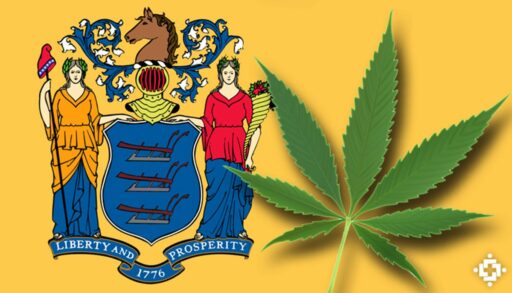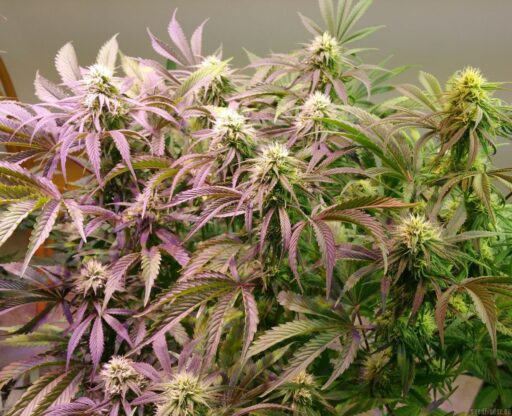New Jersey’s evolving stance on marijuana has introduced new laws and regulations that residents and visitors must understand. With the legalization of cannabis for adults over the age of 21, the state has set forward a framework for legal possession, consumption, and the burgeoning cannabis industry. This article delves into the intricacies of New Jersey’s marijuana laws, exploring everything from individual possession limits to the business landscape of the cannabis market.
Key Takeaways
- Adults 21 and over can legally possess up to 6 ounces of cannabis in New Jersey, a notably liberal limit compared to other states.
- New Jersey’s legislation includes the New Jersey Cannabis Regulatory, Enforcement Assistance, and Marketplace Modernization Act, as well as laws concerning underage possession and use.
- The state has established clear guidelines for safe and responsible consumption, along with DUI and workplace laws to maintain public safety.
- New Jersey’s cannabis business landscape offers opportunities for both recreational and medicinal cannabis ventures, with compliance and enforcement being key aspects.
- While possession of cannabis within legal limits is decriminalized, strict penalties remain for illegal possession, distribution, and other controlled substances.
Understanding New Jersey’s Marijuana Legalization

The Path to Legalization
New Jersey’s journey towards the legalization of marijuana reached a pivotal moment in November 2020, when it joined three other states in a nationwide trend to embrace recreational cannabis use through ballot measures. This significant step was part of a broader movement across the United States, reflecting a shift in public opinion and the potential economic benefits of legalizing marijuana.
Following the successful ballot measure, New Jersey has been working on establishing a regulatory framework to govern the cultivation, distribution, and consumption of cannabis. The process involves multiple stages, including:
- Drafting legislation to outline the legal boundaries of marijuana use
- Setting up a state commission to oversee the cannabis industry
- Developing guidelines for licensing and operation of dispensaries
New Jersey’s legalization efforts are indicative of a larger shift in the national perspective on cannabis, with a growing number of states reevaluating their stance on the substance.
While the state has made significant progress, the path to full legalization is complex and ongoing. Stakeholders, including lawmakers, business owners, and citizens, continue to navigate the intricacies of establishing a safe and legal cannabis market.
Current Possession Limits and Regulations
In New Jersey, the cannabis landscape is continually evolving, with current regulations allowing individuals 21 years and older to possess and use marijuana within certain limits. As of now, the state permits the possession of up to 6 ounces of usable marijuana without any legal repercussions. However, it’s important to note that the sale and distribution of marijuana remain regulated activities, and individuals are not allowed to grow their own plants unless for medicinal purposes.
The possession limits are designed to ensure that personal use does not spill over into illegal distribution.
While personal use is decriminalized, possession of larger amounts can lead to significant legal consequences. For instance, possession of small amounts for personal use is generally charged as a disorderly persons offense, which could result in up to 6 months in jail and a fine up to $1,000. More substantial amounts may be classified as a third-degree crime, potentially leading to up to 5 years in prison and a fine up to $35,000.
The state is also considering new legislation that could further alter the cannabis landscape. A bill known as S1985 is under discussion, which, if passed, would legalize the cultivation of up to six marijuana plants for personal recreational use and up to ten plants for personal medical use by persons aged 21 and over.
Comparing NJ’s Laws with Other States
New Jersey’s approach to marijuana legalization has unique aspects when compared to other states. New Jersey has allowed medical marijuana use since 2010, but it stands out for not permitting home cultivation, a policy that varies widely across states with legalized cannabis.
In comparing New Jersey’s marijuana laws with those of other states, it’s important to consider the nuances of possession limits, commercial regulations, and the status of recreational use. For instance, New Mexico recently legalized marijuana, highlighting the evolving landscape of cannabis laws in the United States.
While New Jersey has made strides in legalizing marijuana, it’s crucial to remain aware of the strict penalties that still apply for other controlled substances within the state.
Understanding the differences in state laws is essential for residents, travelers, and businesses to ensure compliance and avoid legal complications.
Regulations for Safe and Responsible Use

Guidelines for Personal Consumption
In New Jersey, the guidelines for personal consumption of marijuana are designed to ensure that individuals use the substance responsibly and within the confines of the law. Personal use is distinct from intent to distribute, and understanding this distinction is crucial for residents and visitors alike.
- Personal recreational use allows for the possession of a limited quantity of marijuana.
- Medical use permits a higher possession limit for qualifying patients.
- Consumption in public places, especially in school zones or parks, is subject to stricter penalties.
It is essential to be aware of the specific limits and regulations that apply to personal use to avoid legal complications.
For those considering growing marijuana at home, recent legislative efforts have been made to legalize this practice. Bill S1985, for instance, proposes the legalization of growing up to six marijuana plants for recreational use and up to ten for medical use by eligible individuals.
Workplace and DUI Laws
In New Jersey, the intersection of cannabis legalization and workplace safety is a complex issue. Employers are tasked with balancing the need for a safe work environment with the rights of employees to partake in legal, off-duty cannabis use. The challenge is exacerbated by the limitations of current drug testing methods, which cannot reliably distinguish between recent and past cannabis use, making it difficult to assess impairment.
The New Jersey Cannabis Regulatory Commission provides guidance on workplace impairment, but the science of cannabis metabolization differs significantly from substances like alcohol, complicating the determination of impairment.
Employers must navigate these waters carefully to avoid infringing on employee privacy and the New Jersey Law Against Discrimination. Reasonable accommodations must be made for employees using cannabis for medical purposes under the Compassionate Use Medical Marijuana Act. The role of Workplace Impairment Recognition Experts (WIREs) is still evolving, with little clarity on the standards and tools they will employ.
- The New Jersey Cannabis Regulatory Commission Guidance on "Workplace Impairment"
- Challenges in determining impairment due to cannabis
- The limitations of current drug testing methods
- The balance between workplace safety and employee rights
- The need for reasonable accommodations under the Law Against Discrimination
Preventing Underage Access
In New Jersey, stringent measures are in place to prevent underage access to cannabis. Bill S181 mandates the temporary detention and notification of a parent or guardian if an underage individual is caught unlawfully purchasing or possessing cannabis. This reflects the state’s commitment to safeguarding youth from the potential risks associated with early cannabis use.
To further reinforce these efforts, a series of educational programs and community initiatives have been launched. These aim to inform minors about the legal and health consequences of cannabis consumption before the legal age. Additionally, dispensaries are required to strictly verify age through valid identification to ensure compliance with the law.
It is crucial for the community to work collectively to maintain these barriers and support the legal framework that keeps cannabis out of the hands of minors.
Navigating the Cannabis Business Landscape in New Jersey

Starting a Recreational Cannabis Business
The journey to opening a recreational cannabis dispensary in New Jersey is marked by a series of regulatory steps and compliance requirements. With the state’s cannabis business application process showing a strong start, many entrepreneurs are eager to enter the market.
To begin, applicants must navigate the New Jersey Cannabis Regulatory Commission’s (NJ-CRC) system, which includes understanding priority application categories such as those for Economically Disadvantaged Areas and Impact Zones. The first step is to secure a conditional license, a milestone recently achieved by 68 businesses as of March 2022.
The process of securing a recreational cannabis business license in New Jersey is competitive and requires thorough preparation and adherence to state regulations.
Prospective dispensary owners should familiarize themselves with the NJ-CRC’s resources, including detailed FAQs and guidelines on the application process. It’s essential to stay informed on the latest updates, as the regulatory landscape is continually evolving.
Medicinal Cannabis Opportunities
With the legalization of marijuana in New Jersey, the medicinal cannabis sector presents a burgeoning opportunity for businesses and patients alike. The New Jersey Cannabis Regulatory Commission (NJ-CRC) has been instrumental in streamlining the process for patients to access medicinal cannabis, including the introduction of free digital patient cards.
The NJ-CRC’s commitment to accessibility is evident through initiatives such as hosting Medicinal Cannabis Program Registration Clinics. These clinics assist both new and existing patients, as well as caregivers, in navigating the registration process. The clinics are a testament to the state’s dedication to ensuring that patients can obtain the treatment they need without undue burden.
New Jersey’s medicinal cannabis program is not only a gateway to relief for many patients but also a promising avenue for economic growth and innovation within the state.
For those interested in participating in the medicinal cannabis market, the NJ-CRC provides comprehensive resources. This includes information on patient registration, finding healthcare providers, and locating alternative treatment centers. The regulatory framework is designed to maintain a high standard of patient care while fostering a competitive business environment.
Compliance and Enforcement
Ensuring compliance with New Jersey’s cannabis regulations is critical for the success and legality of any cannabis business. Businesses must navigate a complex web of statutes and rules to maintain their operating licenses and avoid penalties.
Key resources for understanding compliance requirements include:
- Cannabis Statutes and Rules
- Resolutions
- Frequently Asked Questions (FAQs)
- Reports
- Education Toolkits
It is essential for businesses to stay informed about the latest regulations and to implement best practices for compliance. This proactive approach can help mitigate risks associated with non-compliance and ensure a smooth operation within the legal framework of New Jersey’s cannabis industry.
The Cannabis Regulatory Commission (CRC) plays a pivotal role in overseeing the industry, providing public information, and conducting public meetings to ensure transparency and accountability. Businesses are encouraged to participate in these meetings and to utilize the resources provided by the CRC to remain compliant.
The Role of Dispensaries in New Jersey’s Cannabis Ecosystem

Finding a Licensed Dispensary
In New Jersey, locating a licensed dispensary for your cannabis needs is made straightforward by the Cannabis Regulatory Commission‘s online directory. This resource is regularly updated to reflect the newest recreational-only dispensaries that have opened their doors to the public. For instance, notable recent openings include Earth and Ivy and Nova Farms.
To ensure you are visiting a legitimate and licensed establishment, it’s essential to refer to the official directory. The directory not only lists the dispensaries but also provides crucial information such as their locations, operating hours, and the types of products they offer.
When choosing a dispensary, consider factors like product variety, staff knowledge, and customer reviews to make an informed decision.
Remember, purchasing cannabis from an unlicensed source is illegal and can lead to serious legal consequences. Always verify the dispensary’s license status before making a purchase.
Product Range and Quality Control
Licensed dispensaries in New Jersey are required to offer a diverse range of cannabis products to meet the varying needs of consumers. Quality control is paramount, ensuring that all products meet strict safety and potency standards. The New Jersey Cannabis Regulatory Commission plays a crucial role in establishing and enforcing these standards.
To maintain high standards, dispensaries must adhere to a comprehensive insurance plan that covers various aspects of their operation. This includes product liability insurance, which is essential in protecting businesses from financial losses due to claims of harm caused by their products. The coverage options for cannabis businesses are extensive:
- General Liability
- Product Liability
- Business Auto
- Workers Compensation
- Property
- Crop Coverage
- Cargo
- Equipment Coverage
- Equipment Breakdown
- Business Income & Extra Expense
Embracing legal weed responsibly ensures the long-term success of cannabis businesses in New Jersey’s cannabis industry.
Dispensaries also contribute to the local economy by creating jobs and generating tax revenue. It is important for consumers to find a licensed dispensary that not only offers a wide product range but also adheres to the rigorous quality control measures set forth by the state.
Impact on Local Economies
The introduction of licensed dispensaries in New Jersey has had a multifaceted impact on local economies. Dispensaries contribute to job creation and tax revenue, but they also face challenges that can affect their economic contributions. For instance, the competition with unlicensed stores, which can sell products at lower prices due to tax evasion and lack of product testing, has been a significant hurdle for licensed establishments.
Despite these challenges, the legal cannabis market holds promise for economic growth. The presence of dispensaries can lead to increased foot traffic and ancillary business opportunities, such as security services and professional consultations. However, the process of opening a licensed dispensary is not without its obstacles, including legal disputes and difficulties in securing suitable locations and funding.
The state’s approach to regulating dispensaries aims to balance opportunity with responsibility, ensuring that the economic benefits do not come at the cost of public health and safety.
The table below outlines the economic impact of dispensaries in New Jersey:
| Economic Factor | Impact |
|---|---|
| Job Creation | Positive |
| Tax Revenue | Positive |
| Local Commerce | Positive |
| Competition | Challenging |
As the market matures, it is expected that the legal framework will evolve to further support the dispensaries’ positive impact on local economies while addressing the challenges they face.
Legal Implications and Penalties
Consequences of Illegal Possession and Distribution
In New Jersey, the legal landscape for marijuana has shifted, but the consequences for illegal possession and distribution of controlled substances remain severe. Possession of small amounts for personal use is typically a disorderly persons offense, which can lead to up to 6 months in jail and a fine of up to $1,000. However, the stakes are much higher for larger amounts, which may indicate intent to distribute and can result in up to 5 years in prison and a fine of up to $35,000.
The threshold between personal use and distribution varies by substance. For instance, less than 5 grams of cocaine is often seen as personal use, while more can lead to distribution charges. Penalties increase significantly if the offense occurs in sensitive areas like school zones or parks.
It’s crucial to understand the distinction between legal and illegal possession to avoid harsh penalties. If you find yourself facing charges, securing legal representation is vital.
Defenses against drug charges can include an illegal search, invalid field drug tests, lack of knowledge about the drugs’ presence, medical necessity for certified patients, or entrapment. Each defense requires careful legal strategy to navigate.
Understanding the Fine Line: Legal vs. Illegal Substances
In New Jersey, the distinction between legal and illegal substances can have significant legal implications. Possession of marijuana under 6 ounces is legal for adults over 21, but crossing this threshold, or possessing any amount if you’re under 21, remains illegal. Similarly, while medical marijuana patients may be exempt, possession of other controlled substances like cocaine, heroin, or prescription medications without a valid prescription is unlawful.
The exact amount that distinguishes personal use from intent to distribute varies by drug, which is crucial to understand to avoid severe penalties.
For those facing charges, defenses may include challenging the validity of a search, the accuracy of drug tests, or proving a lack of knowledge regarding the possession. It’s essential to know your rights and seek legal counsel if you find yourself in such a situation.
- Defenses Against Drug Charges:
- Illegal search
- Invalid field drug test
- Lack of knowledge
- Medical necessity
- Entrapment
Remember, the legal landscape is complex, especially in areas like school zones or parks where penalties are more severe. Staying informed and cautious is key to navigating the fine line between legal and illegal substances.
Legal Resources and Defense for Marijuana-Related Charges
Navigating the legal landscape of marijuana-related charges in New Jersey can be complex. If you’re facing charges, securing an experienced attorney is crucial. They can review your case intricacies and potentially get charges reduced or dismissed. Some common defenses include challenging the validity of a search or the accuracy of drug tests.
Key defenses in New Jersey include:
- Illegal search – Evidence may be excluded if there was no probable cause.
- Invalid field drug test – False positives necessitate a lab test.
- Lack of knowledge – Unaware possession may not be liable.
- Medical necessity – Certified patients may be exempt.
- Entrapment – Coercion by undercover officers is not permissible.
While New Jersey’s drug laws have become more lenient towards marijuana, penalties for other substances are still severe. Knowing the difference between legal and illegal possession is essential to avoid criminal charges.
Remember, a good defense strategy can be the difference between a conviction and an acquittal. Don’t hesitate to reach out to legal professionals who specialize in drug laws and can navigate the complexities of your case.
Conclusion
In summary, New Jersey’s marijuana laws have undergone significant changes, reflecting a more progressive stance on cannabis use and possession. Adults 21 and over can legally possess up to 6 ounces of cannabis, one of the highest limits in the United States. The state has also decriminalized marijuana and hashish possession, with a focus on regulating safe and responsible consumption. While New Jersey has made strides in legalizing both medical and recreational marijuana, it’s crucial for residents and visitors to remain aware of the legal boundaries, such as the prohibition of possession for those under 21 and the illegality of unlicensed sales. As the state continues to develop its cannabis industry, with an increasing number of dispensaries and businesses, understanding these laws is key to participating in the market responsibly and avoiding legal repercussions for non-compliance.
Frequently Asked Questions
What are the current possession limits for marijuana in New Jersey?
In New Jersey, adults 21 and over can legally possess up to 6 ounces of cannabis and related extracts like oils and edibles.
Can individuals under 21 possess or use marijuana in New Jersey?
No, it’s illegal for individuals under 21 to possess or use marijuana in New Jersey. The state has specific penalties for underage possession and use.
How does New Jersey’s marijuana legalization compare to other states?
New Jersey’s possession limits are among the most liberal in the country, allowing up to 6 ounces of cannabis, which is more generous than many other states that have legalized marijuana.
What should I know about starting a recreational cannabis business in New Jersey?
To start a recreational cannabis business in New Jersey, you must comply with state regulations, apply for the appropriate licenses, and adhere to compliance and enforcement rules.
Where can I find a licensed dispensary in New Jersey?
You can find a licensed dispensary in New Jersey by visiting official state resources or websites that list permitted and licensed cannabis businesses.
What are the legal implications of possessing illegal substances other than marijuana in New Jersey?
Possession of illegal substances like cocaine, heroin, methamphetamine, LSD, and certain prescription medications without a valid prescription is illegal in New Jersey and carries strict penalties.





